In 2022, US Congressional Candidates received $119,330,559
from their top donors.
Where did the money come from?
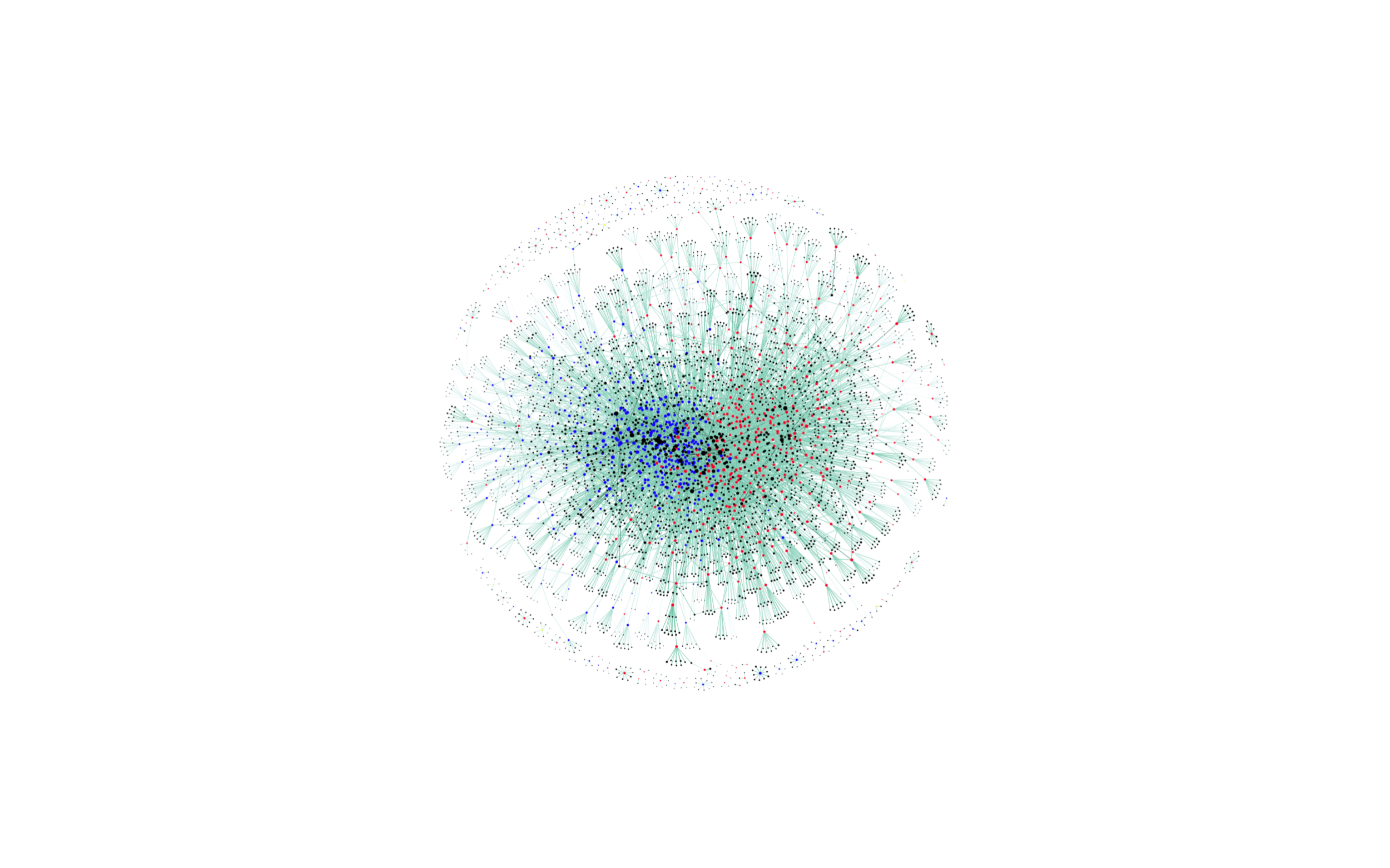
That's about 20% of the annual median household income for American families in 2021 (according to the US Census). The single largest donation, $700,116 to Shontel Brown, would take the average American household nearly a decade to earn.
PACs — Political Action Committees — are organizations that raise and spend money in support of candidates. Most PACs represent corporations, labor unions, or political interests, and an organization's PAC can solicit money from its members and then make donations in the name of the PAC.
For all individual donations of $200 or more, candidates are required by federal law to request the donor's employer and occupation and disclose it if provided. The nonprofit opensecrets.org aggregates this data to build profiles of all donations from individuals associated with a given corporation or other organization.
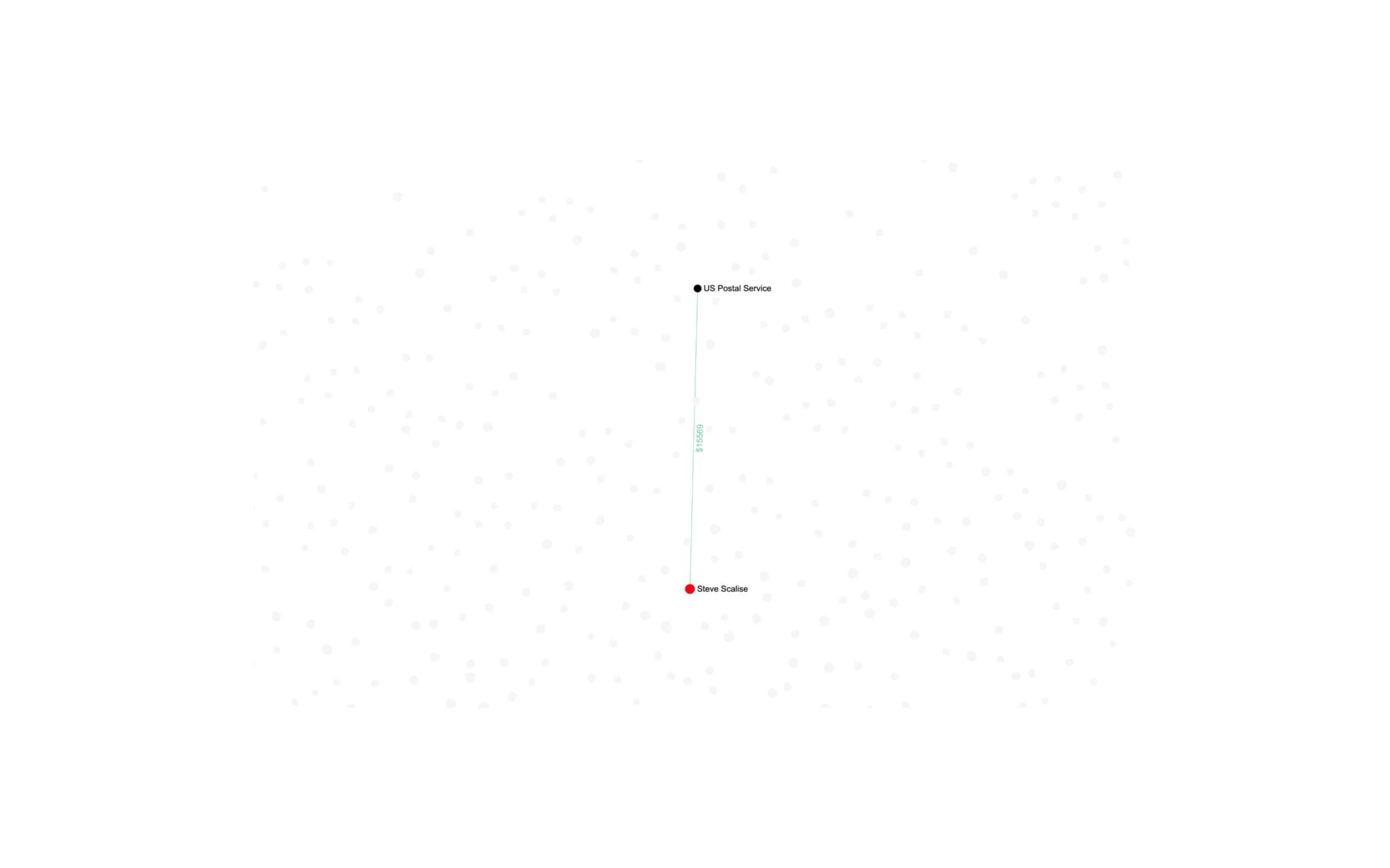
The US Postal Service, for example, did not donate $15,569 to House Minority Whip Steve Scalise, but its employees or other associated individuals did.
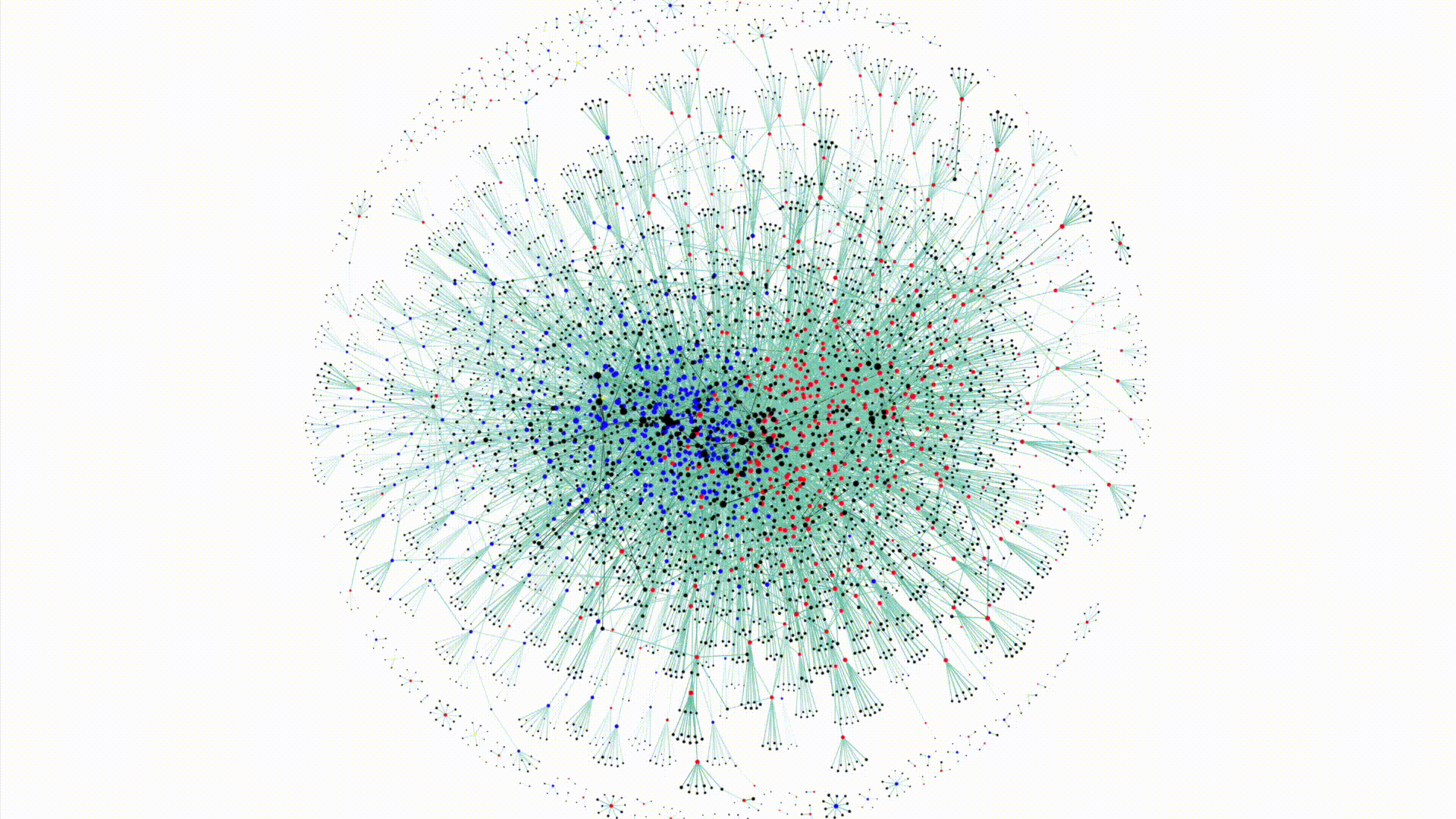
The average sum of campaign donations received by winning candidates was $217,800, while the same figure for losing candidates was only $69,346, less than a third of the funds that benefited their elected counterparts. Seen above, these under-funded candidates faded to the edges of the 2022 race, while those with greater financial resources were significantly more likely to win elected office.
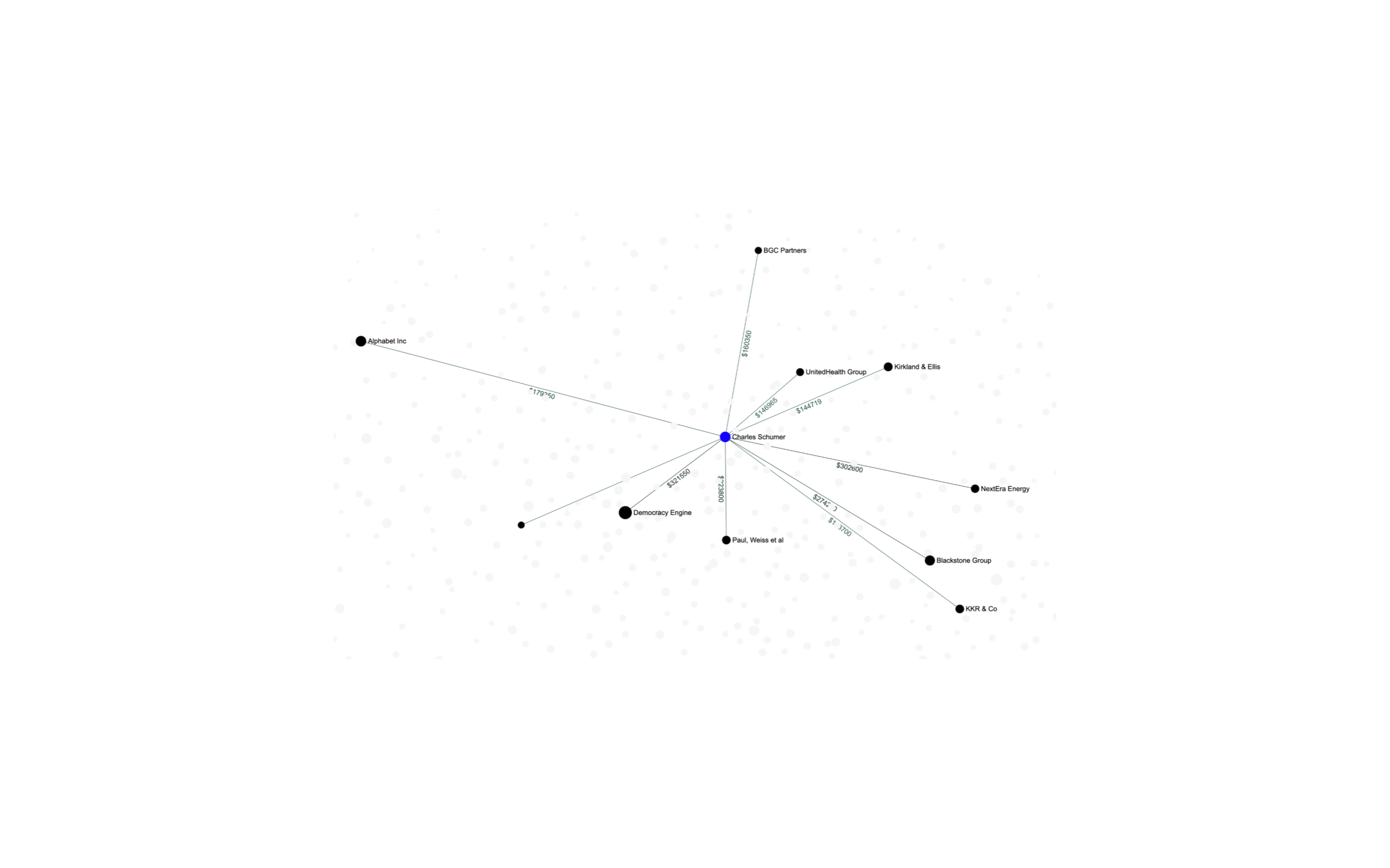
Senate Majority Leader Chuck Schumer, for example, received a total of $2,062,884 from his top ten donors in the last election cycle.
While the 1971 Federal Election Campaign Act forbids PACs from donating more than $5,000 to any candidate in a single election, an organization's employees or other associated individuals are free to give up to $2,900 of their own money per candidate per election. At large organizations with thousands of members, these amounts can add up quickly. It is important to note, however, that such donation clusters do not necessarily imply organization. According to Open Secrets:
"Of course, it is impossible to know either the economic interest that made each individual contribution possible or the motivation for each individual giver. However, the patterns of contributions provide critical information for voters, researchers and others. That is why Congress mandated that candidates and political parties request employer information from contributors and publicly report it when the contributor provides it. In some cases, a cluster of contributions from the same organization may indicate a concerted effort by that organization to "bundle" contributions to the candidate. In other cases—both with private companies and with government agencies, non-profits and educational institutions—the reason for the contributions may be completely unrelated to the organization. Showing these clusters of contributions from people associated with particular organizations provides a valuable—and unique—way of understanding where a candidate is getting his or her financial support. Knowing those groups is also useful after the election, as issues come before Congress and the administration that may affect those organizations and their industries."
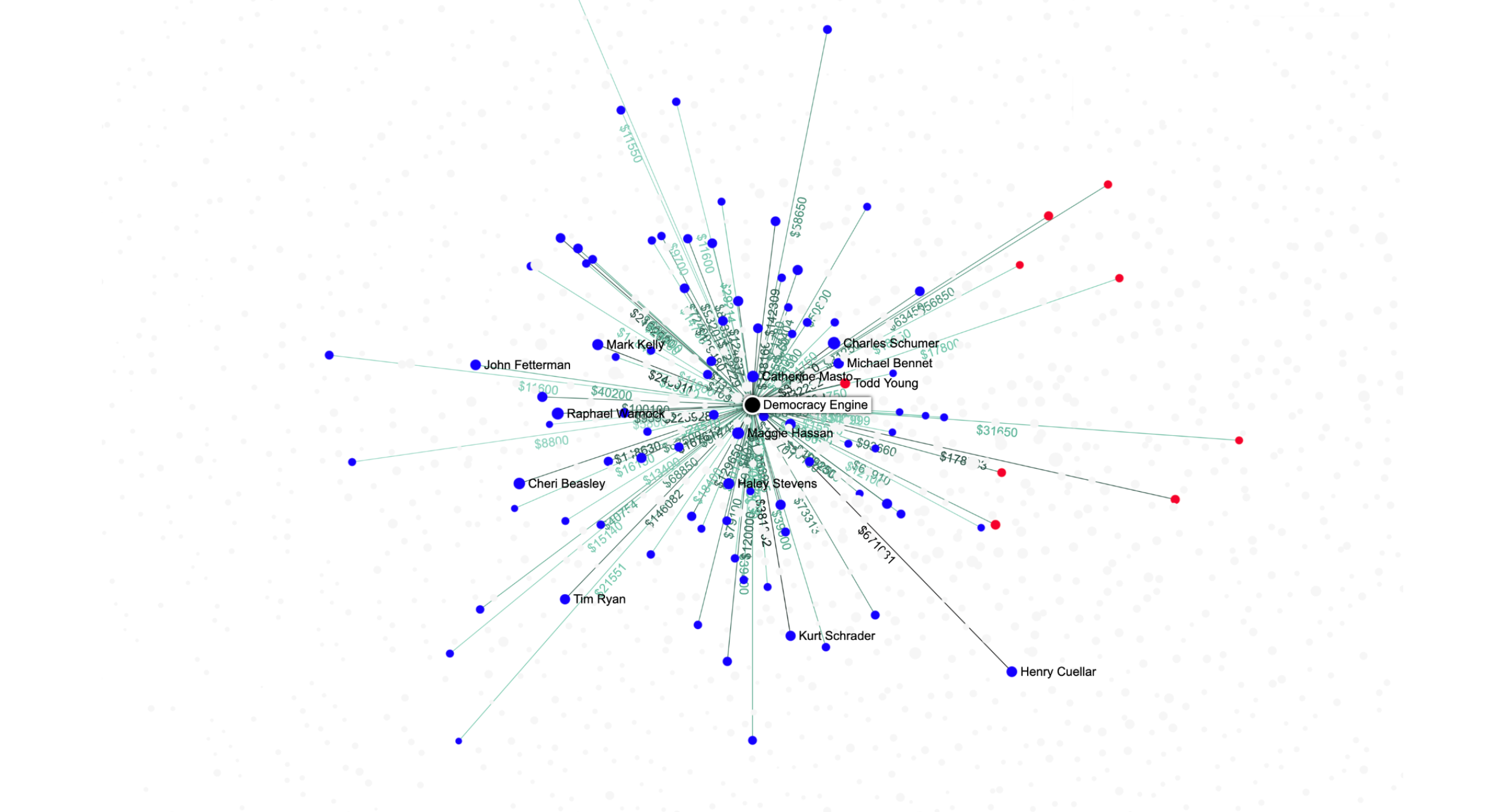
In a nation where large donors have increasing power to sway the outcome of elections, nonprofits like Open Secrets provide voters with powerful tools for understanding the money behind politics. This project uses thousands of Open Secrets data tables, complete with updated transactions from the 2022 race, to visualize the network of cashflow at work behind candidates' congressional campaigns.
The source data is available in raw form on the opensecrets.org site and in the source code of this project, which is publicly available on GitHub, and a standalone version of the interactive story is available at declanrjb.github.io/congress-finance.
My thanks to the dedicated team at Open Secrets, whose award-winning journalism continues to make stories like this possible.

As a new editor of the Quest, Declan is already at work on a new version of the Quest site and, when not in class or reading a book somewhere in the canyon, is likely to be found holed up in the SPO listening to music and muttering something incoherent about semicolons and divs. Like Anie, Declan looks forward to working with both new and returning Quest writers this semester, and plans to spend more than a few late nights in the Quest office (before staggering into his 9 AM history class on Thursday morning).